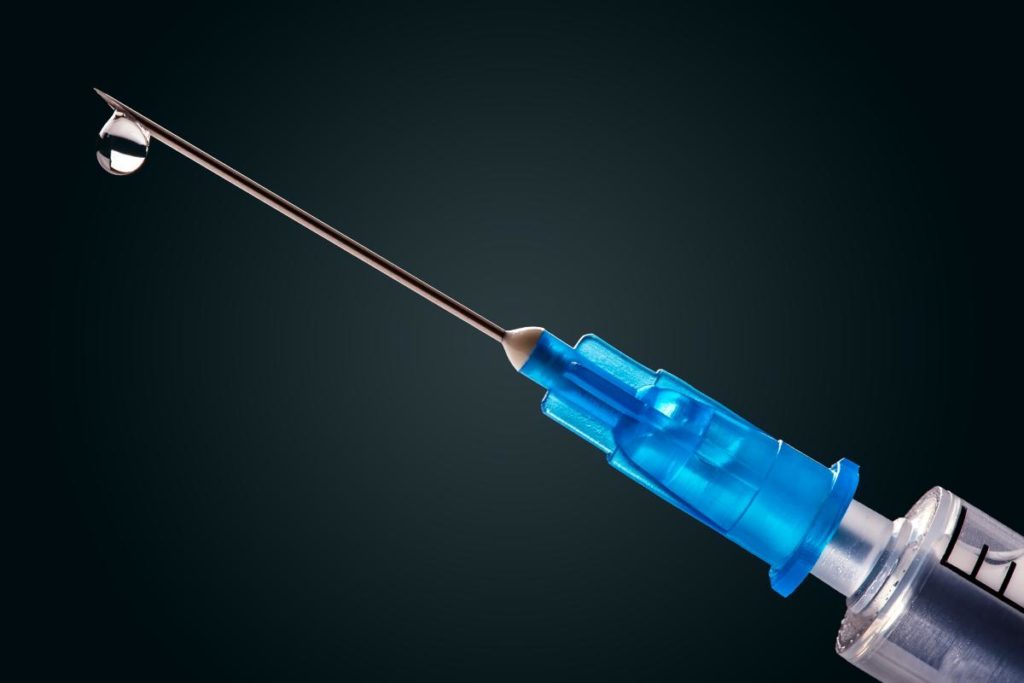There are many dangerous side effects of using cocaine intravenously. If you or a loved one is using cocaine intravenously, it is essential to be aware of the dangers. Consider Vertava Health’s cocaine addiction treatment to get help for your or a loved one’s addiction. Call us today at 844.470.0410 for more information about our treatment options. A life free from addiction is possible.
The Dangers of Intravenous Cocaine Use
Cocaine is a highly addictive drug with severe side effects, mainly when used intravenously. When cocaine is used intravenously (IV), also referred to as shooting, it is administered into a vein and directly introduced into the bloodstream.
Intravenous cocaine use can cause a wide range of health issues, including:
- inflamed or collapsed veins
- skin infection, abscesses, cellulitis, necrotizing fasciitis
- bacteria buildup, or infection in the cardiac valves, endocarditis
- swelling of the feet, ankles, and legs as a result of poor blood flow to extremities
Injecting cocaine is risky because each time someone uses it, they increase the risk of contracting an infection and developing a condition called sepsis. Sepsis, sometimes incorrectly called blood poisoning, is the body’s natural response to infection. Some common complications from intravenous cocaine use begin with the injection process, sometimes called “skin-popping.” Someone who regularly uses cocaine by injection may experience injection wounds, cuts, or other breaks in the skin.
Cocaine use produces many cardiac problems due to the extra stress on the cardiovascular system during each use. It is possible for people who have used cocaine by repeated injection to develop a condition called venous sclerosis, wherein the vein becomes so inflamed that blood is no longer able to flow through it.
Health Dangers of Cocaine Use
The health dangers of intravenous cocaine use include an increased risk of contracting HIV, hepatitis C, and other bloodborne diseases.
Another danger of abusing cocaine is the chance of overdosing. Long-term cocaine use can result in individuals developing a tolerance, meaning they will need larger, more frequent doses of the drug to produce the same effects. This increase in dose and usage can increase the risk of overdose.
Some symptoms of cocaine overdose include:
- Visual or auditory hallucinations
- Delirium
- Hypertension (dangerously high blood pressure)
- Tachycardia (abnormally rapid heartbeat)
- Arrhythmia (irregular heartbeat)
It is easy for an individual to overdose on cocaine, especially when abusing it intravenously. Even one-time use of cocaine can result in overdose and, in some cases, sudden death.
Cocaine Detoxification and Withdrawal
Now that you understand the dangers of IV cocaine use, you can understand how important it is to find help for such an addiction. Detoxing from cocaine usually takes about a week, though individual experiences may vary depending on the severity of the addiction. Cocaine withdrawal happens when someone who has misused cocaine constantly for three or more weeks suddenly cuts down or stops using.
Most of the time, cocaine withdrawal does not consist of any physical withdrawal symptoms, like vomiting and tremors, often associated with opioid or alcohol withdrawal. Instead, cocaine withdrawal consists mainly of psychological symptoms, which may include:
- Agitation and restless behavior
- Depressed mood
- Fatigue
- General feelings of discomfort
- Increased appetite
- Vivid and unpleasant dreams
- Slowed physical activity
- Suicidal thoughts
- Intense cravings
Treatment for Cocaine Addiction at Vertava Health
Treatment for cocaine addiction, no matter the method of use, is available. Medically-supervised detoxification programs can be helpful when detoxing from cocaine due to the increased risk of relapse during the detox and withdrawal processes. Residential treatment programs may help people recover from cocaine use to learn behavior modification skills to manage addiction long-term.
To learn more about intravenous cocaine use and addiction treatment, contact Vertava Health today via our online form or by calling us at 844.470.0410. We can help you or a loved one get on the road to recovery.


